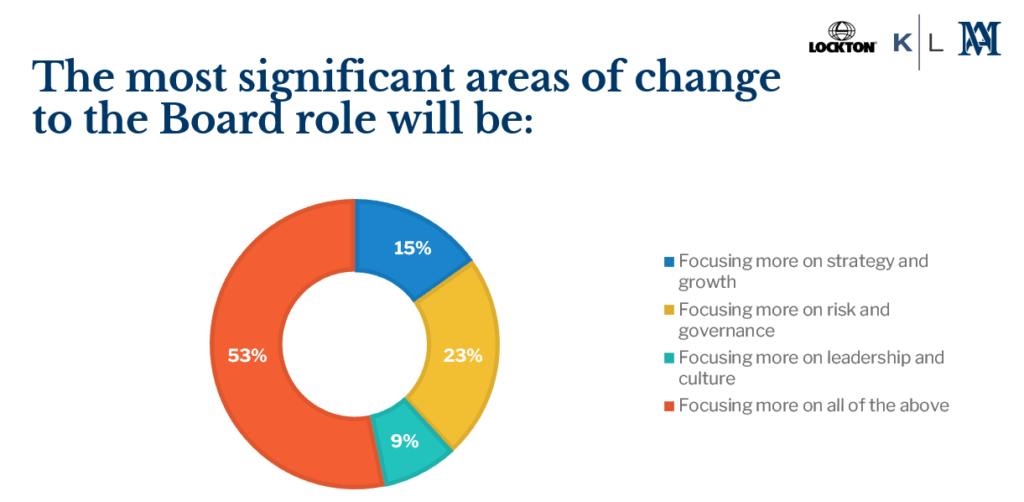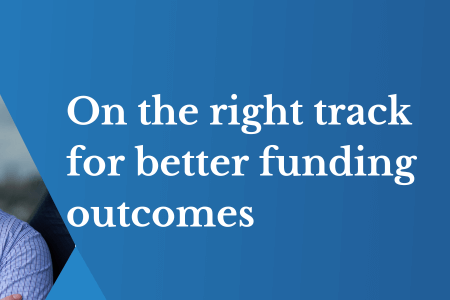A 5-year outlook for Aged Care Boards
May 8, 2024 | Provider Perspectives

By Susan Howarth, Head of Marketing
As the custodians of organisational governance and strategic direction, Boards must navigate a myriad of challenges and opportunities to ensure the sustained success and resilience of aged care organisations.
Recently, we partnered with Kinny Legal and Lockton to host a round table workshop in NSW followed by a national webinar to discuss the pressing issues and imperatives shaping the future of aged care governance and chart a path forward.
Our goal was to explore the role of the aged care Board as it moved towards 2030. Our starting hypothesis was that however well you are operating with your Board today, it will need to change in the next five years.
During registration for the webinar, we polled over 200 aged care providers finding that 61% agree that their current Board structure will need to change in the next couple of years. Furthermore, 77% said that the role of the Board will change significantly in the next five years; and went on to identify the key areas of change they foresee.

Boards are already adapting and there are new responsibilities and liabilities associated with the Aged Care Act and new requirements for non-executive directors supported by different advisory boards.
Through these events, we gathered some of the change that Boards will need to consider to proactively address the demands of the sector in future;
1. Skillsets of the Board:
- Enhance business acumen and diversity of thinking
- Cultivate relevant skills and experience
- Navigate increased liability for both the Board and key staff
2. Professionalism of the Board:
- Assess and elevate the professionalism of the Board
- Mitigate the loss of experience from an aging workforce
- Clarify accountability, especially in distinguishing between paid and volunteer roles
3. Innovation and investment:
- Foster digital literacy among Board members
- Overcome regulatory barriers to innovation
- Anticipate and capitalise on future reforms and opportunities
4. Sustainability of the business model:
- Continuously invest in services to meet evolving needs
- Adopt a future-focused, agile, and customer-centric approach
- Ensure a healthy cash flow to sustain operations and drive growth
To address these challenges and opportunities, here are some suggested areas for executives and Boards to consider:
Board composition and development:
-Evaluate the suitability of current Board members and identify skill/knowledge gaps
-Implement development plans to address identified needs
-Clarify accountability and expectations for each member, ensuring awareness of liabilities
Strategic transition planning:
-Develop a sensible plan for transitioning to meet future scenarios
-Align the Board’s strategic direction with organisational goals and risk management strategies
-Drive strategy formulation and risk mitigation efforts to navigate transitions effectively
Clarifying the role of the Board:
-Articulate the Board’s role in governing the future clearly
-Establish mechanisms for transparent communication and decision-making
-Foster a culture of accountability and innovation to drive organisational success
As guardians of aged care organisations, Boards must embrace change, innovation, and strategic foresight. By prioritising skill development, professionalism, innovation, and strategic planning, Boards can position themselves to lead their organisations toward a future of sustainable growth, resilience, and excellence in care delivery.
If you’d like to explore strategies for your aged care Board, please get in touch.


